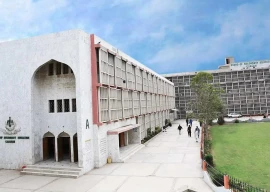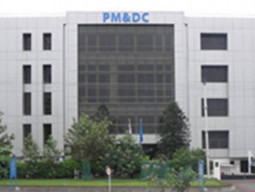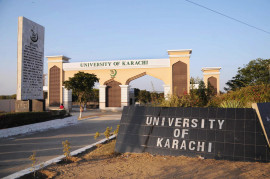
For Rehana Bibi, containers placed on roadsides have become symbolic of loss. They remind her of the moment her 8-year-old son, Abdul Rafay was fighting for his life at her home in Ghora Gali, Murree and urgently required blood transfusion.
Rafay was born with thalassaemia major and his life was entirely dependent on blood transfusion, which he needed after every 10-to-15 days.
“I cannot forget. It was the night of August 14 and we tried to take Rafay to Pakistan Institute of Medical Sciences (Pims) for a blood transfusion, but we couldn’t as all the roads leading to Islamabad were blocked,” said Rehana.
While talking to The Express Tribune, she said that they waited for two days for the roads to open, but “when the condition of my son started worsening, I begged my male relatives to [try to somehow] take Rafay to Pims, otherwise my son would die,” she said.
Rehana later contacted her cousin Muhammad Aqeel, a driver at a private office in Islamabad, to suggest an alternate route. Aqeel told Rehana about an unpaved road from the Bani Gala side.
“I was so relieved when I saw the entry gate of Pims. For a moment I felt that I had got a new life, but as we entered the parking lot, my son stopped breathing. He died in my arms,” a tearful Rehana told The Express Tribune.
“I screamed out for help but it was too late. No one could have helped then,” she said.
The agony did not end there for Rehana.
“On our way back to Murree from the hospital, we got stuck in a massive traffic jam. For four hours, we were stuck in traffic with Rafay’s body lying in the car,” Aqeel told The Express Tribune.
When the family finally reached back home, Rehana’s blood pressure shot up, puncturing her eardrum.
“She was taken to Pims, underwent a surgery and was admitted in the surgical intensive care unit (ICU) for a few days,” said Aqeel.
Now whenever she sees containers or hears someone talk about her son, her blood pressure shoots up.
Rafay was one of Rehana’s two children and her only son.
“My heart bleeds when I see our so-called political leaders playing music and dancing on roads and have no mercy for poor people like us whose only wealth is their children,” said Rehana.
Rehana has completely lost her trust in all the political leaders and holds all of them responsible for the death of his innocent son.
“The day he was diagnosed with thalassaemia major, I decided that I would make an all out effort to ensure he gets blood transfusions to keep him alive. I had never thought that he would die because of road blockades,” she said.
Rehana is not alone, a number of people belonging to far-flung areas visit the federal capital for medical treatment. The road blocks continue to affect a number of these visitors.
Polyclinic Hospital spokesperson Dr Tanveer Malik and Pims spokesperson Dr Waseem Khawaja told The Express Tribune that there had been a drastic decline in the number of patients since August 13.
“There are many patients form far-flung areas requiring regular follow-up check ups, but they are reluctant to come to Islamabad due to fear of road blockades,” they said.
Published in The Express Tribune, August 31st, 2014.
COMMENTS (2)
Comments are moderated and generally will be posted if they are on-topic and not abusive.
For more information, please see our Comments FAQ





1732947071-0/BeFunk_§_]__§-(4)1732947071-0.jpg)











Brings tears to my eyes reading about the plight of the mother and the helpless child. What a waste ! Why don't the politicians show their power in open grounds instead of the cities? I am sure there are more stories of such tragedies which could have been averted. What about the IDPs? They are suffering in silence while this clash of ego goes on.
This is so heartbreaking. No dharna is worth loosing a life like this.